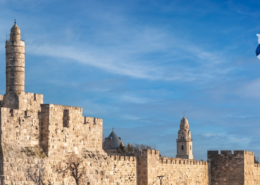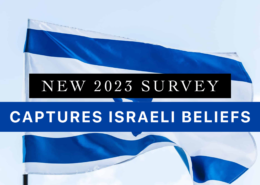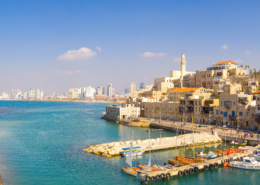Passover and the Cup of Redemption: A Journey from Slavery to Freedom
חג פסח שמח
Hag Pesach Sameach
Happy Passover
As the Passover season approaches, Jewish households worldwide are preparing to celebrate with the traditional Passover Seder. This ancient ritual serves as a poignant reminder of God's redemption of the Israelites from slavery in Egypt. But beyond its historical significance, Passover holds deep theological meaning for believers in Messiah.
The Passover Seder, a ceremonial meal, is centered around retelling the Exodus story in an interactive manner. It's not just a recounting of events but an immersive experience meant to engage participants in the narrative of liberation. For believers, Passover transcends mere tradition;
it serves as a vivid illustration of the gospel message and the ultimate redemption offered through
Yeshua (Jesus).
Kindling the Light
A Seder will typically begin with the woman of the house kindling the Passover candles and bringing light to the Passover table. For believers in Messiah this is significant, for it was a woman, Mary, who began the redemptive career of the Messiah by giving birth to the light of the world.
The people walking in darkness have seen a great light; on those living in the land of deep darkness a light has dawned. Isaiah 9:2
Yeshua spoke to them again, saying, “I am the light of the world. The one who follows Me will no longer walk in darkness, but will have the light of life.” John 8:12
The First Passover
The Passover narrative, outlined in Exodus 12, recounts the ten plagues of Egypt, and culminates in the deliverance of the Israelites through the Red Sea. Central to this story is the requirement to sacrifice an unblemished lamb and apply its blood to the doorposts of their houses (Exodus 12:5-7).
The blood is said to serve as a sign (Exodus 12:13) which will cause the Lord to pass over that house sparing the Israelites from the final plague of death. This act of redemption serves as a foreshadowing of the greater redemption to come through Yeshua, the Lamb of God (John 1:29).
The parallels between Old Testament types and New Testament fulfilment are striking, underscoring the continuity of God's redemptive plan throughout history that is revealed to us in the Word of God. The Apostle Paul, in his letter to the Colossians, emphasizes the Christological significance of these rituals, asserting that they not only serve to commemorate a historical event, but they also
foreshadow the substance which is to be found in Christ:
“Therefore no one is to act as your judge in regard to food or drink or in respect to a festival or a new moon or a Sabbath day-things which are a mere shadow of what is to come; but the substance belongs to Christ” Colossians 2:16-17
These Passover themes of slavery and redemption are continued throughout the bible. Therefore, being in Egypt is described as being in the house of slavery (Exodus 20:2) and in the New Testament an unbeliever is described as being in slavery to sin (Romans 6:20). When God described the events
of the Exodus from Egypt, He says that they have been redeemed from Egypt (Deuteronomy 7:8).
Similarly, when salvation is spoken of in the New Testament it is done with the same Passover language of redemption. The Apostle Peter writes:
knowing that you were not redeemed with perishable things like silver or gold from your futile way of life inherited from your forefathers, but with precious blood, as of a lamb unblemished and spotless, the blood of Christ. 1 Peter 1:18-19
It is hard to miss the Passover parallels laid out in these verses. Just as the Israelites were redeemed from slavery in Egypt through the blood of the Passover lamb, believers too are redeemed from sin and bondage through the precious blood of Jesus. Paul makes it even more explicit when He says,
“Christ our Passover is sacrificed” (1 Corinthians 5:7).
The Four Cups
At the heart of the Passover Seder are the four cups, each representing a promise of deliverance
drawn from Exodus 6:6-7.
6 Say, therefore, to the sons of Israel, ‘I am the LORD, and I will bring you out from under the burdens of the Egyptians, and I will deliver you from their bondage. I will also redeem you with an outstretched arm and with great judgments. 7 Then I will take you for My people, and I will be your God; and you shall know that I am the LORD your God, who brought you out
from under the burdens of the Egyptians. Exodus 6:6-7 The four cups with the corresponding promises are as follows:
1.) The Cup of sanctification – I will bring you out
2.) The cup of Deliverance – I will deliver you
3.) The Cup of Redemption – I will redeem you
4.) The Cup of Restoration – I will take you
The third cup, known as the Cup of Redemption, holds particular importance as it symbolizes the blood of the Passover lamb that secured Israel's redemption. This cup finds its ultimate fulfilment in Yeshua, who instituted the new covenant through His blood with this third cup which is taken after the meal at Passover. And in the same way He took the cup after they had eaten, saying, "This cup which is
poured out for you is the new covenant in My blood. Luke 22:20
During the last supper, Jesus takes the third cup declaring it to be symbolic of the new covenant in His blood, thus establishing a powerful connection between the Passover and the Christian ceremony of communion. As believers partake in communion, they not only remember Yeshua's
sacrifice but also anticipate His return, proclaiming His death until He comes again (1 Corinthians 11:26). The Passover serves as a profound reminder of God's faithfulness throughout history and His enduring promise of redemption. It points believers to the ultimate Passover Lamb, Yeshua, whose sacrifice brings freedom from sin and eternal life.
As we contemplate the significance of Passover and communion, we anticipate that day in the age to come when we join with the redeemed of all ages in proclaiming: “Worthy is the Lamb that was slain to receive power and riches and wisdom and might and
honor and glory and blessing.” Revelation 5:12
לשנה הבאה בירושלים
l'shana haba'ah b'yerushalayim
IN A COMING YEAR IN JERUSALEM
Thomas Fretwell
Founder
https://www.ezrafoundation.org/





